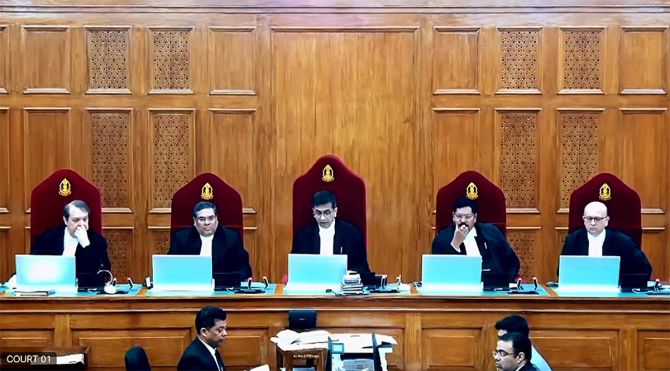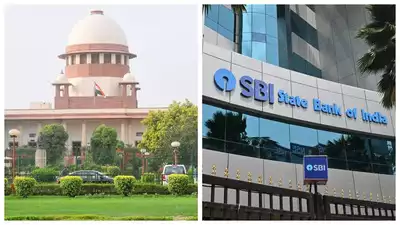The Supreme Court of India has sternly directed the State Bank of India (SBI) to lay bare every conceivable detail regarding electoral bonds issued since April 2019.
This bombshell directive, issued on Monday, March 18 has sent shockwaves through the corridors of power, as the apex court seeks to shed light on the contentious electoral bond scheme, which has long been criticized for enabling anonymous and potentially undue corporate influence in politics.
The court’s ultimatum to the SBI, the sole issuer of these controversial financial instruments, comes in the wake of a landmark verdict delivered just last month.
In a historic ruling, the Supreme Court declared the electoral bond scheme unconstitutional, citing its facilitation of anonymous political funding as a flagrant violation of the fundamental principles of transparency and accountability.
The court’s directive is both comprehensive and unequivocal. It demands that the SBI disclose every shred of information on electoral bonds purchased and encashed since April 12, 2019, leaving no room for selective or partial disclosure.
This includes divulging the unique alpha-numeric codes assigned to each bond, a critical piece of information that could potentially link the anonymous purchasers of these bonds to the political parties that ultimately encashed them.
Expressing its displeasure with the SBI’s conduct thus far, the bench underscored that the bank should have been “candid and fair” in its disclosures, rather than withholding the crucial alpha-numeric IDs that connect the dots between bond buyers and beneficiary political entities.
Supreme Court’s Deadline
The SBI has been given a tight deadline of March 21 to comply with the court’s order, a mere two days from the issuance of the directive. By 5 pm on Thursday, the SBI chairman must file an affidavit confirming that no information has been withheld, signaling the court’s unwavering stance on ensuring complete transparency.
This urgency underscores the pivotal importance of the issue at hand and the court’s determination to unravel the intricate web of political funding that has long evaded public scrutiny.

The Implications
The court’s directive carries profound implications for the future of Indian democracy and the integrity of its electoral processes. The electoral bond scheme, introduced in 2017, was intended to promote transparency in political funding by providing a legitimate channel for corporate donations.
However, it quickly drew criticism for enabling the very opacity it purported to combat, as the anonymity afforded to bond purchasers effectively shielded them from public scrutiny.
By demanding unfiltered access to the electoral bond data, the Supreme Court has taken a bold step towards restoring faith in the democratic process and upholding the principles of accountability and fairness that are the bedrock of any functioning democracy.
Opposing Views
The court’s directive has reignited the debate surrounding electoral bonds, with various stakeholders weighing in with divergent viewpoints.
Senior advocate Harish Salve, representing the SBI, assured the court that the bank had no difficulty in disclosing all details, signaling its willingness to comply with the order.
On the other hand, Solicitor General Tushar Mehta, representing the central government, highlighted concerns that the data on electoral bonds were being twisted to suit certain agendas, underscoring the polarizing nature of the issue.
Meanwhile, political parties and civil society organizations have welcomed the court’s intervention, hailing it as a significant step towards reclaiming transparency and restoring public trust in the democratic process.
As the Supreme Court’s deadline looms, the nation eagerly awaits the SBI’s compliance with the directive, which could potentially lift the veil on the murky world of political funding in India.
The court’s bold move has reignited the debate on the delicate balance between preserving anonymity and upholding transparency, a debate that strikes at the very heart of India’s democratic ideals.
With the spotlight now firmly fixed on the SBI, the onus lies on the banking institution to deliver an unfiltered and comprehensive disclosure, setting the stage for a potential watershed moment in the country’s electoral history.
As the clock ticks down, the nation holds its collective breath, hoping that this landmark decision will pave the way for a more transparent and accountable political landscape, one that upholds the sacred tenets of democracy and empowers the electorate with the knowledge they deserve.
Also Read: Jammu and Kashmir’s Critical 7-Phase Deferral of Assembly Polls Until LS Elections 2024












Comments 2